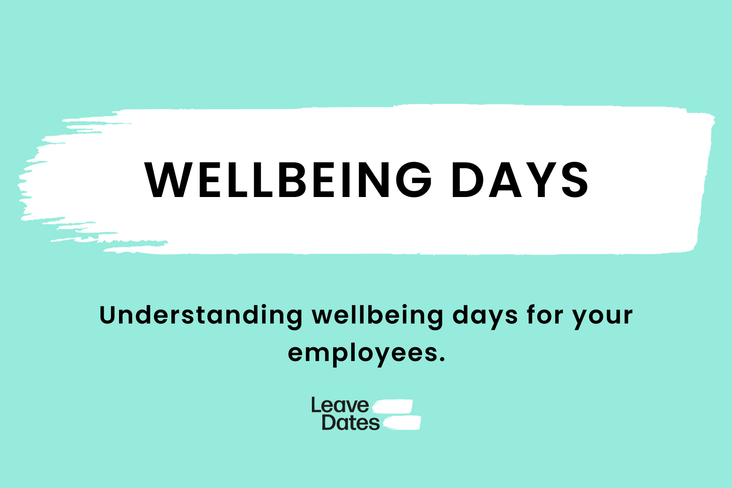We've all heard the term 'work-life balance', but how does it compare with the emerging concept of work-life integration vs balance? While balance suggests a clear divide, integration encourages harmony between work and personal life, which can ironically create the exact balance we're looking for.
Humans have lovely ideas about how life should look, but is it possible to achieve?
How many people do you know that have perfected their work-life balance?
Rather than spend another minute striving for something that isn’t real, why not work towards something more realistic and attainable?
Try work-life integration.
The importance of work-life integration
Work-life integration helps us emphasise where our professional and personal priorities align, which is increasingly important in this constantly connected world. Approaching the need for balance with integration opens up the possibility of more flexibility and can relieve considerable pressure and stress.
Why do we try to separate work and life?
From a young age, we have been raised to separate our work and home lives, but it’s not working well for most of us. We spend more time than ever at our jobs and are stressed out.
At best, we can hope for a 50/50 split of time, but in reality, you are landing closer to 60/40 or 70/30, with work taking the lion's share. When you factor in sleep, eating, exercise, and caring for your family, there isn’t much “life” left.
That’s why work-life integration is a much more attainable way to live your life.
It focuses on bringing your life and work closer together instead of trying to separate them with an imaginary line. Work to get the job done, not to clock a certain number of hours and be careful not to allow work to take over, or let your busy home life impact your performance at work.
As long as you have a clear set of goals that you can measure against, then what's the problem?

Stop hating your job.
If you didn’t hate your job so much, you wouldn’t need to close the door behind you on Friday evening and forget about it until Monday morning.
If you're not happy in your job then something needs to change.
According to Margie Warrell you have 3 options:
- Change what you do - either a new role or a new career.
- Change how you do it - adopt a new mindset and cultivate new habits.
- Change nothing, and be complicit in your own misery (not recommended).
If this doesn't help you then speak with your manager about your concerns, maybe there is something they can do to help.
When did it become the norm to hate our jobs? That puts tremendous pressure on our home lives to be great, as we try to make up for our unhappiness at work.
Very often this causes more stress than the job itself as we expect everything to be perfect at home after a bad day in the office. Instead, it's time to care for the kids, make dinner and try to find a few minutes for yourself before bed.
This is not a healthy way to be living... it’s time for a change.
Opportunities for work-life integration in your workplace
Work-life integration requires that you stop focusing on one aspect of your life to make you happy and start focusing on finding happiness in all aspects of your life.
It’s not always possible, all the time, and it doesn’t have to be.
The point of this thinking is to constantly look for opportunities to make yourself happy, rather than putting all the expectation on work or home life to improve your wellbeing.
We say things such as, “I can’t wait to get out of here so I can go home and live my life,” but in reality, we spend more time at work than anywhere else.
Our jobs provide us with so much opportunity for social interaction, fun and happiness - embrace this.
Work-life integration examples
Creating a system of work-life integration is not about blurring the lines between work and personal life. It is about aligning both to be productive and ensure that your lifestyle is fulfilling.
- Take advantage of flexible work schedules to prioritise personal goals.
- Shared calendars can help you plan and coordinate work and personal or family activities with transparency.
- Dedicate some time during breaks for mindfulness of quick workouts.
- Take part in work-sponsored events to connect with your colleagues, especially if you work on a different schedule
Live in the moment
A Harvard study found that people spend nearly half their time (46.7%) thinking about things other than what they are doing, and concluded that mind-wandering typically makes them unhappy.
If we count down the clock waiting for "life" to begin we are more likely to start daydreaming.
Conversely, when we live in the moment and focus on those around us, we are engaged and happy - and our work will not feel like "work".
The lines blur.
The word "balance" is wrong because not everyone needs a balanced life, integration is far more important.
Achieve integration
Integration is about fitting the pieces of your life together in a way that is productive to you. As we step into 2025, work-life integration will become evermore critical in navigating hybrid and remote work models. Build a fulfilling life and successful career by focussing on what works best for you, you can create a harmonious life without the constant tug-of-war between work and personal commitments.
Give yourself some space to think about how you want your life to look. Don't focus on the things which aren't working for you, focus on those that are working and build on them.
Your brain will give you all the inspiration you need to create an integrated life - if you listen.




